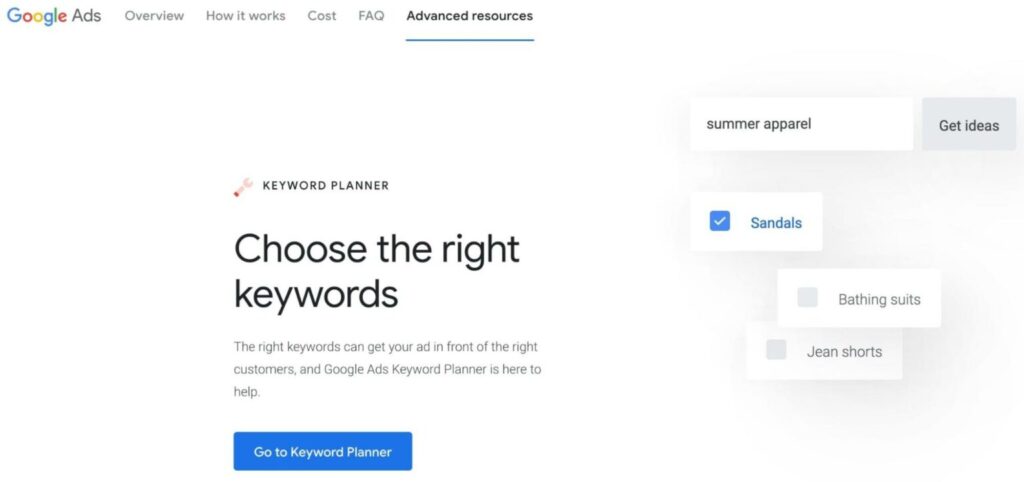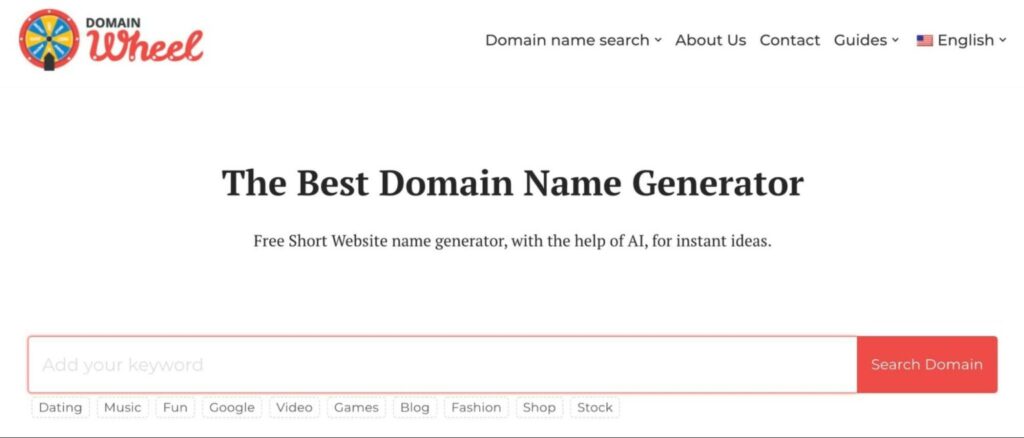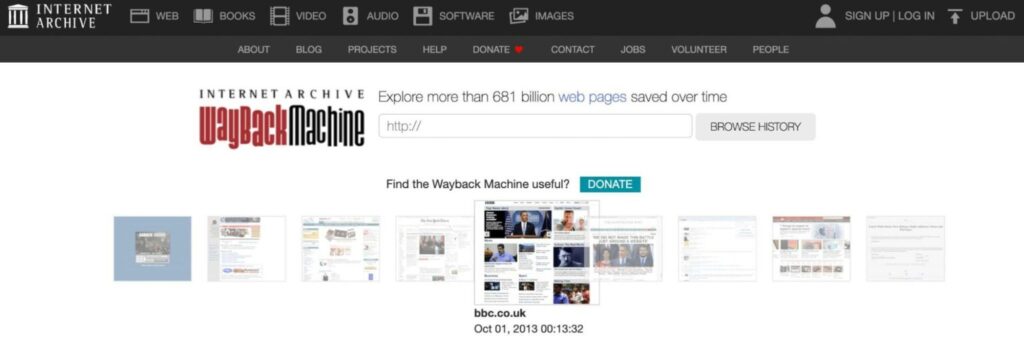Choosing a domain name is one of the biggest decisions you’ll make as a website owner. If you choose poorly, it can negatively impact your brand’s reputation. So, what’s the secret to finding the perfect domain name? We hope you’ll have a better idea by the end of this post.
Fortunately, picking a winning domain isn’t overly complicated. As long as you do your research, stay on brand, and make sure you go with something user-friendly, you’re likely to make a good impression.
This post will discuss the importance of choosing the right domain name. Then, we’ll share some tips to help you make the right decision. Finally, we’ll provide some advice on domain registrars and even tell you how to get a free domain with your web host. Let’s get started!
Why Choosing the Perfect Domain Name is Crucial?
A domain name is your website’s address. It is a part of a larger Domain Name System (DNS) that enables internet users to input a combination of words instead of a lengthy set of numbers.
Your domain name serves a highly practical function, but it’s so much more than that. In many cases, your domain is the first impression a customer will have of your brand. This is true whether you’re a freelance photographer, a small business, or an international corporation, this is true. Therefore, your domain is nearly as important as your logo and brand name.
A lengthy URL may seem like a red flag to customers. Moreover, if it’s hard to remember, users might be less likely to revisit your site. Therefore, your domain name should be short and memorable.
Note that changing your domain name can be challenging. It’s not impossible, but it can lead to unwanted outcomes such as a loss of traffic and unnecessary downtime. With this in mind, you’d be wise to carefully consider your domain name from the get-go.
How to Choose the Perfect Domain Name (11 Pro Tips)
Now that you know why picking the right domain name is essential, let’s go over some key tips to help you do just that. Keep in mind that you can check for domain availability in various places, such as yours truly vHost.ae.
1. Choose Your Top Level Domain Extension Carefully
A Top-Level Domain (TLD) extension is the last part of your URL that comes directly after the name of your site. Some of the most popular TLDs are .com, .org, and .net.
Among all the TLDs, .com is often a popular choice. However, if .com is taken, it’s not the end of the world.
Other popular TLDs such as .xyz, .shop, .club, .online, .art, .inc, and even .party are becoming increasingly common. TLDs like .marketing and .technology allow you to go with something more relevant to your industry. The usage of ccTLDs (Country Codes) is also an extremely popular option. In recent years, more technology startups are using .io (Indian Ocean), .ai (Anguilla Island), and .co (Colombia), for example. Ultimately, you’ll want to choose a domain name extension that is cohesive with your website and signals credibility.
2. Incorporate Targeted Keywords
Keywords aren’t just for content. Search engines use your domain name to understand what your site is about and help determine search rankings. Therefore, it’s essential to include keywords where possible.
The keywords you choose for your domain name should be relevant to your website and targeted to your audience. If you’re having trouble thinking of good ideas, you can give Google Keyword Planner a try:

This free tool lets you explore keywords by search volume and other factors to identify terms people actually use. However, a domain name doesn’t offer a lot of space to work with, so you’ll only want to incorporate keywords when they fit in naturally.
3. Make Sure Your Domain is Easy to Pronounce and Spell
You probably want your domain name to be original and memorable. However, novelty isn’t always a good thing. If you modify the spelling of a common word to get that .com extension (or simply to be cute), you might confuse your audience.
While word-of-mouth advertising is powerful, it only works when people can actually pronounce your domain. This also makes the name easier to remember, increasing the odds that people will visit and pass the site along to their networks.
In recent years, more businesses have opted for 4-letter combinations of easily pronounceable domains. In addition to being incredibly memorable, this is also due to the ability for domains to hold aftermarket value. That is, if the business fails, the domain(s) can still be sold. One very popular 4-letter pattern is c-v-c-v (consonant-vowel-consonant-vowel), exemplified by Snap and Meta.
4. Avoid Hyphens and Doubled Letters
Using hyphens may seem like a creative way to get the domain name you want and is admittedly still popular in some European countries (www.deutsche-bank.com). Unfortunately, they’re tough to express verbally (imagine yourself saying “dash” or “hyphen” out loud). They also make the domain more difficult to type. This can create a poor User Experience (UX) from the start, leaving a user frustrated. Even worse, they may give up entirely and end up on someone else’s website.
While there are exceptions, when you’re brainstorming domain name ideas, it’s best to avoid anything that isn’t a letter. This includes replacing letters with numbers, which make the name a lot easier for people to mistype.
The same goes for doubled letters – it’s asking for typos. Doubled letters are hard to read and even harder to type correctly. If mistakes happen often enough, you may end up with someone typosquatting and stealing your traffic.
5. Keep Your Domain Name Short
There are several reasons short domains work better. First, they’re easier to remember and faster to type. Therefore, they are more likely to support a positive UX.
This is especially important as more and more people are browsing the internet on mobile devices. A short domain name means fewer opportunities for mobile users to get blindsided by autocorrect.
Furthermore, an overly long URL is yet another way to scare off visitors. If you’re overcomplicating your domain with unnecessary keywords, your users might get suspicious.
6. Stay Unique and On Brand
A unique domain name can help your website stand out and potentially help you avoid legal trouble. It can also contribute to your marketing efforts. In fact, if your site represents a larger brand, you would be wise to consider your domain name as you’re creating the brand name itself.
If you’re a self-employed individual, you can still consider your body of work and your website as part of your personal brand. For instance, if you run a private therapy practice, an original yet branded domain name might include your full name and field. In this scenario, a strong URL might read something like: janesmithpsychology.com.
Another powerful way for businesses to reach a local audience is by including geolocation within the domain name (e.g., laautoshow.com).
7. Pick a Domain Name That’s Flexible
Your domain name is one area where you don’t want to put yourself into a box. While you should be specific enough to attract an audience, you don’t want to be so precise that there’s no room for your website to grow.
For example, “shutter.photography” might be perfect for a photography blog. However, if you decide to write about other art forms in the future, you’ll be stuck with an inaccurate domain name.
Therefore, it’s smart to consider how your site or business may expand over time. You’ll want to make this decision with a long-term vision.
8. Use a Domain Name Generator
Chances are you have brainstormed a list of potential domain names by now. You may have even thought of the ideal one. However, sometimes your perfect domain name might not be available.
Once again, there’s no need to panic. You can always get creative and slightly modify your domain. If you’re having trouble finding inspiration, you can use a domain name generator like Domain Wheel:

This tool prompts you to enter a few keywords and then provides you with an extensive list of possible domains. These options may include TLDs that you haven’t even heard of. For example, you might see .biz or .info.
Be wary of some suggestions, though, as they often contain hyphens or other elements that you should avoid. Even if you don’t find the right domain name with a generator, one of the recommended options may give you a new idea.
However, if you’re brimming with your own ideas, you may find https://instantdomainsearch.com/ useful as well.
9. Check the Domain History
You might have your sights set on a completely fresh domain name. However, there’s also a possibility that the domain you’d like to purchase had a previous owner.
It’s best to investigate the domain’s history as this could affect your site’s search engine rankings. There are a few tools you can use to check on past owners, including Wayback Machine and Whoxy:

This is useful information to know. For instance, you wouldn’t want to buy a domain name that was previously running an unethical business, as it might hurt your reputation.
10. Research Social Media Handles
If you have plans to engage with your visitors or customers, chances are you’ll want to create social media accounts that are linked to your domain name and website. Therefore, it’s wise to check your preferred social media sites to see if your domain name is available in handle form.
Alternatively, you can check to see if a variation of your domain name is available. This is a common practice.
If you’re not planning to use too many different social media networks, you can easily do this manually. However, if you want a bit of help, https://www.namecheckr.com/ is a great way to see all available social media handles at a glance.
This handy tool can provide you with useful information about trademarks. It can also help you manage dozens of social media accounts.
Conclusion
Your URL offers a chance to leave a good first impression. That’s why a strong domain name is essential for the success of your website. So, if you’re ready to land that perfect domain name, remember these handy tips and click below to start your search today.


Hi, this is a comment.
To get started with moderating, editing, and deleting comments, please visit the Comments screen in the dashboard.
Commenter avatars come from Gravatar.